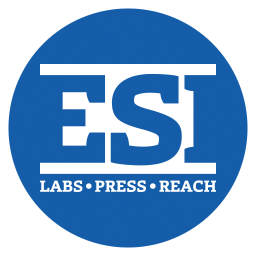Future-Democracy

Future-Democracy
This research area examines the shifting dynamics of political parties and the pressing challenges facing modern democracies. It addresses critical issues such as the widening gap between political elites and the public, increasing voter apathy, and eroding political legitimacy. In response to these complex crises, we aim to reimagine the role of political parties and the future of democracy itself.
Political parties are central to meeting these challenges, tasked with rebuilding trust and ensuring the effective delivery of quality public services. This theme explores the intricate mechanisms needed to revitalize democratic systems, institutions, and practices. **Future-Democracy** seeks to uncover the roots of these crises and investigates bold, transformative approaches to reinvigorate democratic processes. Through rigorous research, we aim to develop robust strategies and frameworks to help democracies evolve and thrive.
Project Coalitions
This is a pioneering initiative aimed at unravelling the intricacies of coalition politics across the African continent. How coalitions are formed and how they operate in the African political context, are under-explored areas. This project will map coalition politics and their broader effect using agent-based simulations.
This is a new use of this methodology within the African context. The simulations will provide unprecedented insights into the mechanics of coalition politics and serve as invaluable resources for researchers, policymakers. They will form the basis of our larger goal to build agent-based simulations.
In association with the Konrad Adenauer Stiftung Foundation (KAS) South Africa, this project builds upon an evaluation of party positions of nine political parties, including the DA, IFP, FF+, ACDP, ActionSA, BOSA, UIM, Spectrum, and Rise Mzansi.
A second phase will use these findings and the positions articulated in the parties’ 2024 campaign manifestos, media coverage, and confirmation interviews to model the benefits, challenges and effects of coalition politics.
Project Vote
Recognizing the critical link between youth and democracy, this program tackles the growing challenge of youth apathy in South Africa by addressing the concept of “waithood”—a period of dependency and frustration experienced by young people due to high unemployment.
In response to South Africa’s current challenges, particularly the disconnection of youth from the democratic process, we are launching a **Civic Education Project** during and after the 2024 election period. This initiative focuses on first-time voters and includes three key sub-projects:
-
Never Too Young for Civic Education: UP Edition
Targeting young people aged 16-19, this sub-project raises awareness about democracy and electoral processes. By educating first-time voters about their democratic rights and the importance of participation, we aim to inspire active engagement in election processes. This platform fosters civic engagement among learners from diverse backgrounds.
-
The Waithood Project
Addressing the unique challenges of “waithood” in South Africa, this sub-project creates a space for meaningful, inclusive deliberation. It explores the impact of youth apathy on formal politics, evaluates the successes and shortcomings of current institutional frameworks, and investigates innovative ways to enhance youth democratic participation.
-
Elections in the Digital Era
With the 2024 elections approaching, this sub-project examines the role of digital influence in shaping civic and voting behaviours. It analyses the use of misinformation and disinformation in past campaigns and their impact on South Africa’s democratic landscape.
Through this comprehensive initiative, we aim to engage, empower, and educate South Africa’s youth, recognizing their immense potential as catalysts for democratic change.
